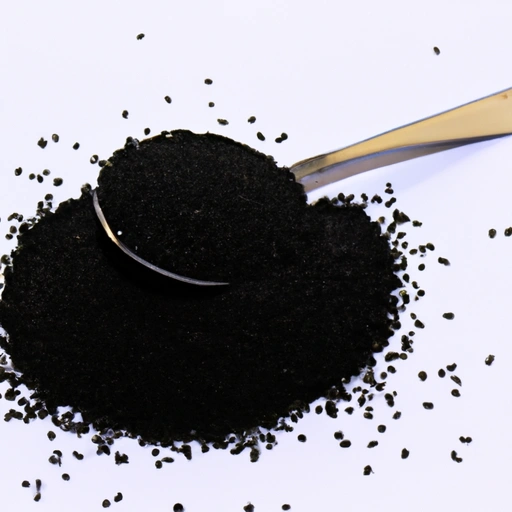Black Cumin
Description

Black cumin, known scientifically as Nigella sativa, is a small, dark, and aromatic seed that is a culinary treasure, particularly in Middle Eastern, Indian, and North African cuisines. While it is sometimes confused with common cumin (Cuminum cyminum), black cumin has a distinct flavor profile that has been lauded for both its culinary and medicinal properties. In recipes, black cumin is measured in teaspoons or grams, and the conversion between the American and European units is straightforward: 1 teaspoon equals approximately 5 grams.
Common uses
Black cumin seeds are often used to season bread, provide a peppery flavor to curries, and as a spice in vegetable and meat dishes. In its oil form, black cumin is popular in dressings and condiments. The seeds are also traditionally used in herbal teas and infusions.
Nutritional value
Calories
Per teaspoon (about 2 grams), black cumin seeds contain approximately 7-9 calories.
Protein
Black cumin seeds provide about 0.3 grams of protein per teaspoon.
Fat
They contain approximately 0.5 grams of fat per teaspoon, of which a fraction is essential fatty acids.
Carbohydrates
The seeds have about 0.8 grams of carbohydrates per teaspoon.
Vitamins
While not a significant source of vitamins, black cumin seeds do contain trace amounts of B vitamins.
Minerals
They are a good source of iron, calcium, and magnesium, providing small amounts per serving.
Health benefits
Black cumin is reputed to have a wide range of health benefits, including anti-inflammatory and antioxidant properties. It has been used traditionally to treat ailments such as asthma, hypertension, diabetes, and even as an immune booster.
Potential risks
While generally safe for culinary use, black cumin can interact with certain medications and may not be suitable for pregnant women. As with any supplement or herbal remedy, it is advisable to consult with a healthcare professional before incorporating substantial amounts into your diet.
Common recipes
Black cumin seeds are featured in recipes like Peshawari naan, certain curry powders, spice blends such as panch phoron, and Middle Eastern za'atar.
Cooking methods
The seeds can be used whole, crushed, or as an oil. They are often toasted to release their aromatic oils before being added to dishes.
Pairing with other ingredients
Black cumin pairs well with starches like potatoes and rice, legumes such as lentils, and a variety of meats and vegetables.
Summary
Black cumin is a versatile and flavorful spice that offers both culinary delights and potential health benefits. Used in a variety of dishes around the world, it can add a unique flavor and nutritional boost to your meals.